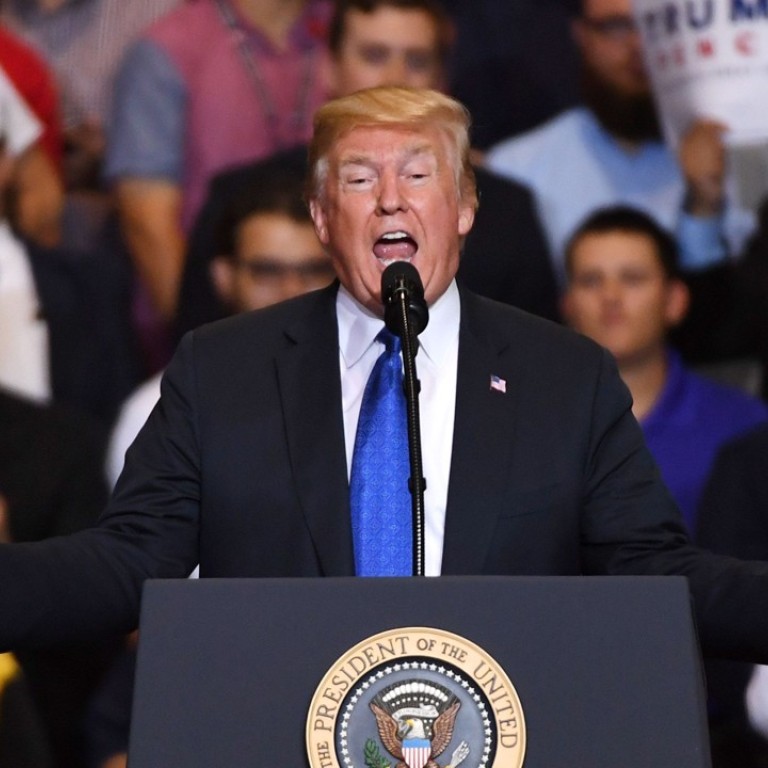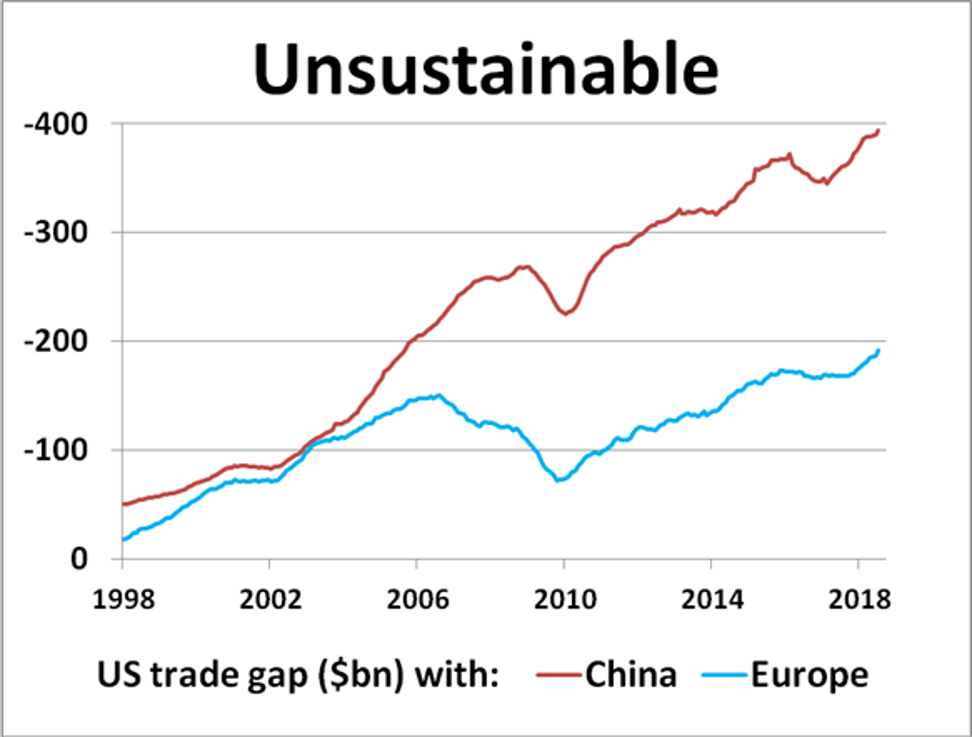
Trump has made his point with the US-China trade war, now the real work must begin
David Brown says a rethink of the US’ trading relationship with China is long overdue, but instead of a protracted conflict, both sides should take steps to agree on a mutually beneficial dynamic
Both sides have been trading blows for months and world markets have been quaking in their boots in fear of dire repercussions. It may sound strange but perhaps a trade war is a good thing, shaking the global economy out of its torpor for better rather than worse?
The mark of a sophisticated financial economy is one which adapts to change when exposed to shock. After all, the world bounced back from the Great Recession, battered and bruised, but applied remedies and moved on. Is it now time for the US, China and Europe to bury the hatchet and move on, too?
Looking at the tensions pulling the world apart right now, perhaps the world needs change and trade relationships need reforging. Handled in a positive way, it could kick-start a renaissance in global fortunes. If there is will, there should be a way to work out a happy ending to suit all in the long run.
Pressing the reset button on the world’s mushrooming trade imbalances was long overdue. It is something which supranational authorities like the International Monetary Fund have warned about for years in terms of threats to global stability. Nowhere is this truer than America’s trade gaps with China and Europe, which have grown at exponential rates in recent years.
With annual trade deficits worth about US$400 billion against China and around US$200 billion against Europe in 2017, it is no wonder America’s external position looks so weak and US President Donald Trump has blown a fuse, citing unfair trade practices by the US’ competitors. The world might be aghast at Trump’s shock and awe tactics but perhaps he is correct to say the US has been too complacent over the years allowing China and Europe to rip into excessive US domestic demand at a rate of knots without question. Trump is right to shake the tree on trade, but he’s wrong to rip it out by the roots.
Trump is right to shake the tree on trade, but he’s wrong to rip it out by the roots
The consequences of a deepening trade war are deadly serious. The Organisation for Economic Co-operation and Development warns that global expansion has already peaked, with world growth projected to settle at 3.7 per cent in the next two years, below pre-crisis norms and with downside risks intensifying.
Global growth has become less broad-based, with prospects diverging across the major economies, especially among emerging markets. The world can ill-afford a trade war when recovery prospects need rebooting.
In an interconnected world, trade sanctions are upending hard-won trading relationships, hurting growth, threatening jobs and risking higher inflation. World leaders should recognise the US is spending too much abroad, while China is spending too little at home. Economic policies need rebalancing and new initiatives must be coordinated and harmonised through supranational bodies Trump is trying to eschew. The IMF and World Trade Organisation are there to help.
Watch: Escalating US-China trade war makes European firms nervous
US fiscal policy is far too slack, especially considering the explosive impact that Trump’s recent tax cuts are having on the US budget deficit. This could easily double, I believe, from its current 4 per cent of gross domestic product to 8 per cent in the next few years, with excessive home demand continuing to leak abroad.
The trading relationship between the US and China needs a fresh start. Both countries should do more trade with each other rather than less and on better terms
Likewise, China must redouble its efforts to shift the nation’s economic thrust from export manufacturing towards a stronger consumer-led and investment-based economy. This should help rebalance the economy and lessen the political pressure from China’s booming export surplus.
The trading relationship between the US and China needs a fresh start. Both countries should do more trade with each other rather than less and on better terms.
The focus should be on things both countries do best but also building up intra-industry trade in quality-differentiated goods and services between both economies. Active, two-way trade in autos, aerospace, agriculture, electronics, computers, banking and insurance, among other things, should be a boon not a bane.
Critically, both sides need to come together, end the enmity and make concessions. The goal is to make the world stronger, not put it into cardiac arrest. Regaining mutual trust is paramount.
David Brown is chief executive of New View Economics


